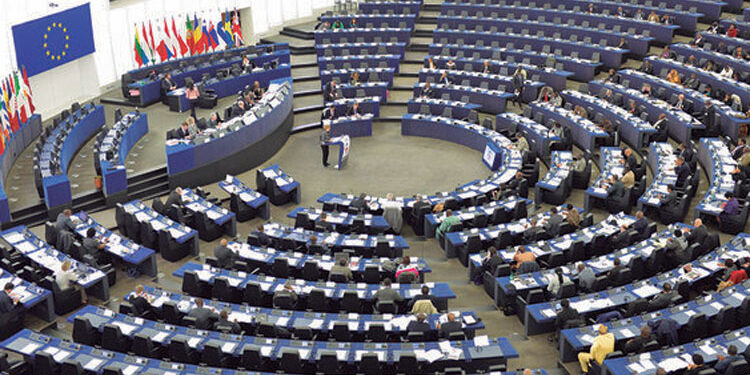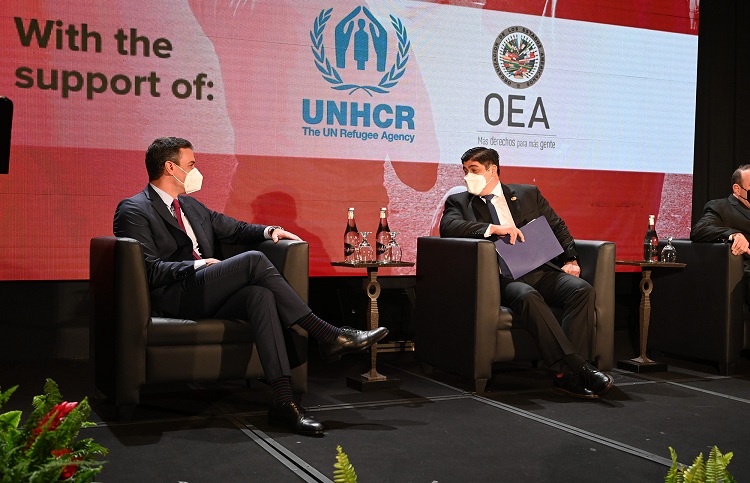The Diplomat
The European Parliament adopted yesterday by a large majority a resolution rejecting Morocco’s use of border controls and migration, and in particular of unaccompanied minors, as a means to exert political pressure against Spain. It also recalls that the protection of Ceuta as an external border “concerns the entire EU” and praises the “effective and professional response” of the Spanish security forces to deal with the crisis.
In a resolution adopted with 397 votes in favor, 85 against and 196 abstentions, MEPs regret that children, unaccompanied minors and families have participated in the mass crossing of the border between Morocco and Ceuta, “clearly endangering their lives and safety”. They also add that the escalation of the political and diplomatic crisis should not jeopardize relations between Morocco and the EU and its Member States, nor cooperation in many areas.
The text recalls that, since last May 17, there has been an unprecedented increase in entries into Spanish territory, with nearly 9,000 people arriving in Ceuta, swimming or on foot, after the Moroccan police temporarily relaxed border controls, opening the gates of its border fence, and did not take measures to stop illegal entry. At least 1,200 of these people were unaccompanied minors and many of them lacked documentation, it adds.
MEPs also call on Spain and Morocco to work closely together to allow the repatriation of the minors to their families, which should be guided by the best interests of the child and carried out in accordance with national and international law, in particular the UN Convention on the Rights of the Child. They also warn that the European Commission must reach, as soon as possible, a readmission agreement with Morocco with the necessary legal guarantees.
In its resolution, the European Parliament underlines that the bilateral crisis is not related to the question of migration, but was triggered after the admission in a Spanish hospital of the leader of the Polisario Front, Brahim Ghali, ill with COVID-19, and that it has to do with the alleged ambiguity of Spain’s position on Western Sahara. Therefore, the House reiterates the EU position on the matter, based on full respect for international law in accordance with the UN Resolutions, with a view to reaching a just, lasting, peaceful and mutually acceptable negotiated solution.
EPs also convey their solidarity to the people of Ceuta and underline that “Ceuta is an external border of the Union whose protection and security concerns the Union as a whole”, while urging the Commission to provide emergency funds to address the situation in the city, including funding for additional reception capacities for unaccompanied minors. They also stress the inviolability of the national borders of EU states and full, non-negotiable respect for their territorial integrity.
The resolution also applauds the “effective and professional response of the Spanish security forces and the Spanish Army” in the Autonomous City, as well as NGOs and the citizens of Ceuta, in dealing with the crisis and helping to save numerous lives. Finally, he values the protection provided to unaccompanied minors by the Spanish authorities.
On the other hand, the State Secretary for the European Union, Juan González-Barba, and the State Secretary for Territorial Policy and Public Function, Victor Francos, traveled yesterday to Ceuta to reiterate the commitment of the Government of Spain with the Autonomous City and to address the situation generated after the May crisis and analyze future prospects.
González-Barba, in statements to journalists, assured that the government “is considering” the possibility of “abolishing the special regime that was established for the autonomous cities when Spain joined Schengen“, an exception that allows residents in the Moroccan provinces of Tetuan and Nador to enter Ceuta and Melilla, respectively, without a visa.
“In this way, border control would be at the crossing point with Morocco” and not in the port, explained González-Barba, who warned that it is “a matter of enormous importance that requires maximum consensus both in the city and among the national political forces”.







